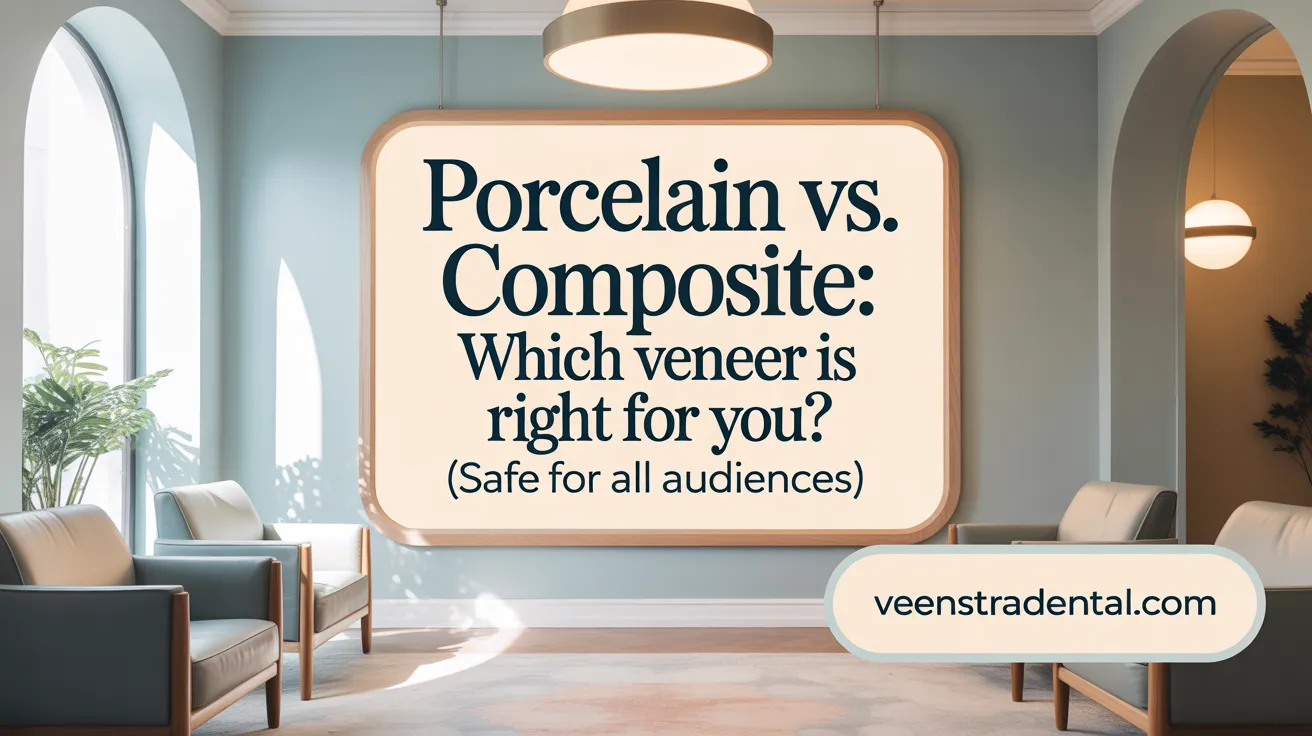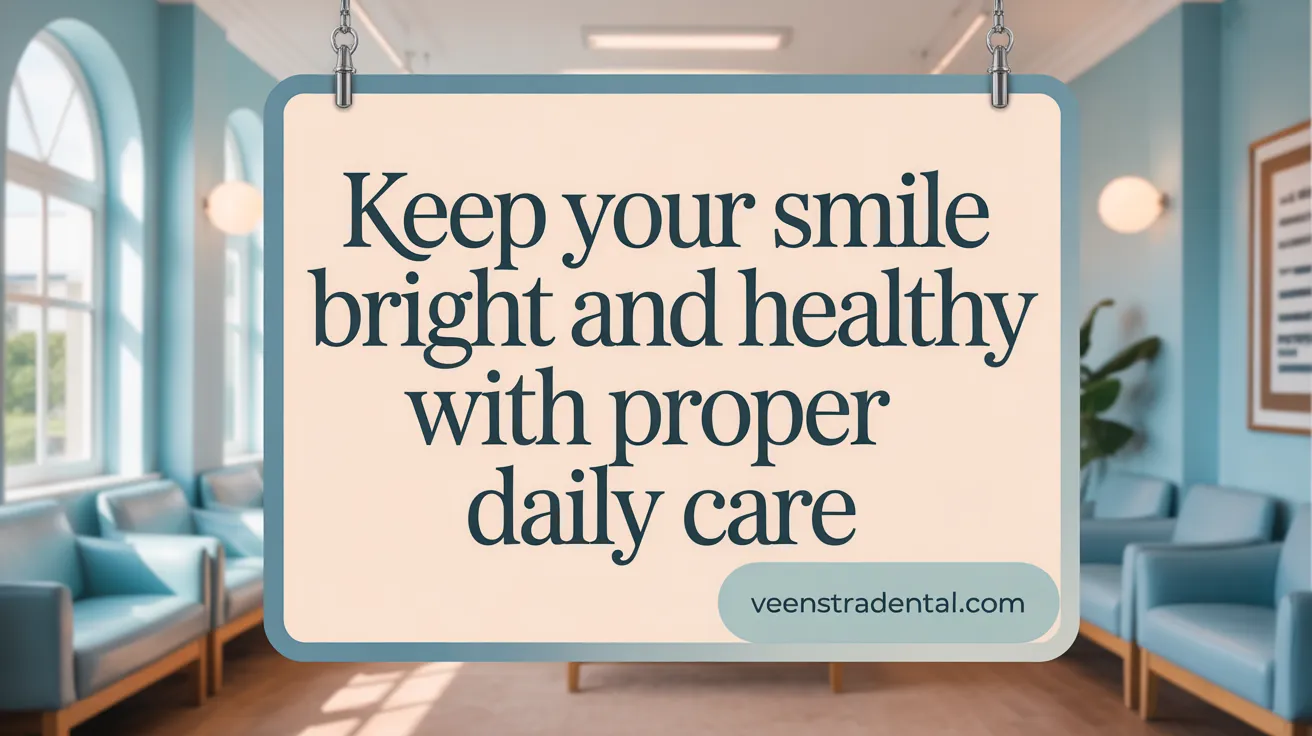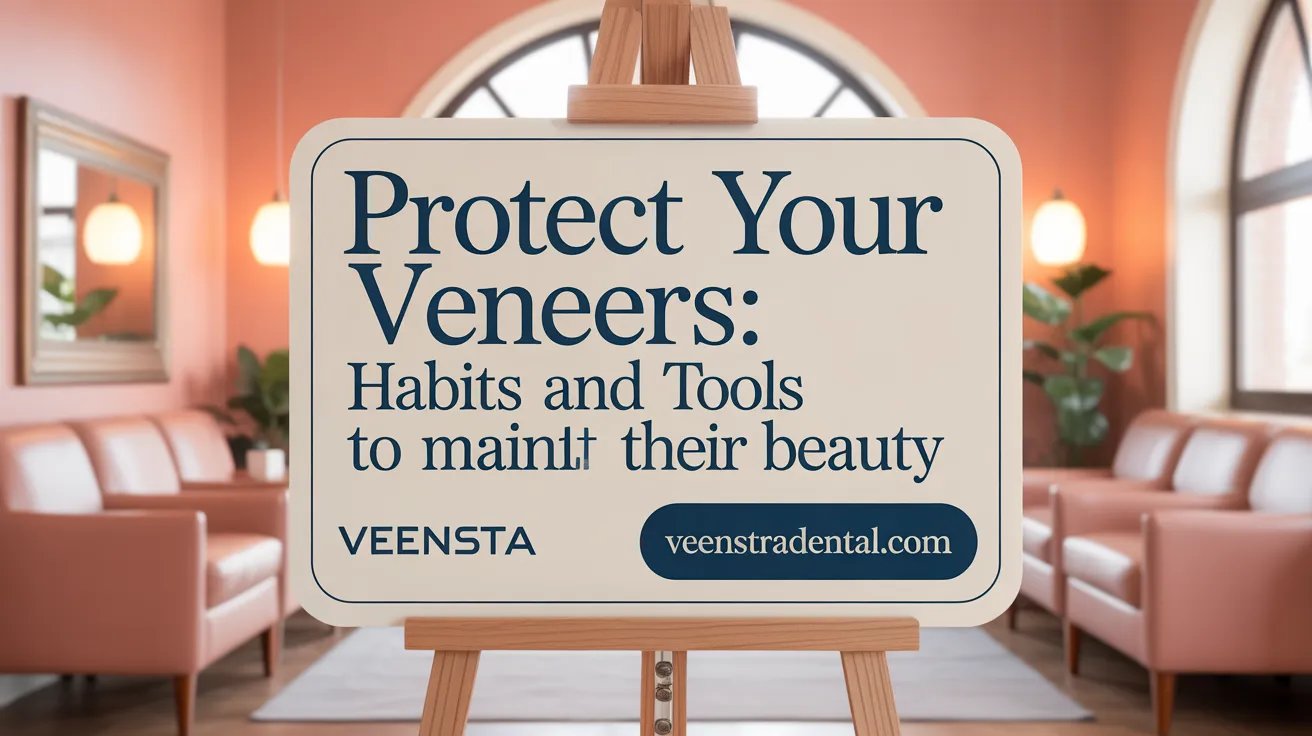Unlocking the Secret to a Long-Lasting Brilliant Smile
Dental veneers are a popular cosmetic solution to improve the appearance of your teeth, but their beauty and durability depend heavily on proper care. This guide will explore the essential tips and best practices to keep your veneers looking flawless and lasting for years, preserving both their aesthetic and functional benefits.
Understanding Dental Veneers: Materials and Durability

What are the different types of veneers, and how do their materials influence durability?
Dental veneers are thin shells bonded to the front of teeth to improve appearances and function. The two main types are porcelain and composite resin veneers.
Porcelain veneers are crafted from a ceramic material that closely mimics the natural translucence of real teeth. They are known for their strength, stain resistance, and longevity, often lasting between 10 to 15 years or even longer with proper care. These veneers resist discoloration from coffee, tea, and tobacco, maintaining a bright, natural look over time.
Composite resin veneers, on the other hand, are made from a tootht-colored resin material. They are usually more affordable and easier to fix compared to porcelain veneers. However, they tend to be less durable, with a typical lifespan of around 5 to 7 years. These veneers are more susceptible to staining and chipping, which makes them suitable mainly for minor cosmetic adjustments.
What are the benefits and limitations of porcelain versus composite veneers?
Porcelain veneers offer excellent aesthetic results thanks to their natural look, stain resistance, and durability. They are a preferred choice for those seeking long-term improvements and are willing to invest more upfront.
Composite veneers, while less costly, provide quick and easier placement. They are better for temporary or minor fixes but require more frequent repairs or replacements due to their tendency to stain or chip.
What common dental imperfections can veneers address?
Veneers are commonly used to conceal various dental imperfections, such as:
- Discoloration and stains that don't respond to whitening treatments
- Chips and cracks in teeth
- Minor misalignments and gaps
- Worn-down or uneven teeth
- Misshapen or small teeth
By covering these issues, veneers help create a more uniform, bright, and natural smile while also providing some protection to the underlying tooth structure.
Daily Oral Hygiene Practices for Veneer Longevity

How can dental veneers be cared for to extend their lifespan and maintain their appearance?
Proper daily oral hygiene is essential to keep dental veneers looking their best and lasting longer. Regular brushing twice a day with a soft-bristled toothbrush helps remove plaque and food debris without scratching the delicate surfaces of porcelain or composite resin veneers.
Use a nonabrasive fluoride toothpaste that is approved for veneers to prevent surface damage. Avoid harsh whitening or abrasive pastes, as these can cause scratches or dull the veneer surface over time.
Flossing daily is equally important. Carefully floss between teeth using waxed floss or floss picks to remove trapped food particles and plaque, which can lead to decay around the edges of the veneers or the natural teeth underneath.
In addition to brushing and flossing, incorporating an alcohol-free mouthwash into your routine helps reduce bacteria, maintain fresh breath, and protect the bonding integrity of the veneers. Be sure to choose a mouthwash that does not contain alcohol, as alcohol can weaken the adhesive bond used to affix the veneers.
Veneers are designed to mimic natural teeth, so they require care similar to your regular teeth. Maintaining good oral hygiene prevents cavities and gum disease, which could otherwise affect the longevity of the veneers. Regular dental check-ups every six months enable your dentist to perform professional cleanings, check for early signs of wear or damage, and make any necessary adjustments.
Avoid habits such as biting on hard objects, chewing ice, fingernails, or using teeth as tools to open packaging. If you grind or clench your teeth, consider wearing a custom nightguard to protect your veneers from undue stress and prevent chips or cracks.
By adhering to these daily practices, you can help ensure your veneers remain bright, functional, and durable for many years.
Dietary Do’s and Don’ts: Protecting Your Veneers from Stains and Damage

What foods and drinks should I limit or avoid to protect my veneers?
To keep your veneers looking bright and functioning well, it is best to limit or avoid certain foods and beverages. Common culprits include coffee, tea, red wine, dark berries, and tomato sauce. Tobacco use can also stain veneers over time.
How do staining agents affect veneers despite their resistance?
Porcelain veneers are naturally stain-resistant, which is why they are popular for a bright smile. However, heavy and frequent consumption of staining foods and drinks can still cause discoloration over time. Substances like coffee, wine, and berries contain pigments that can gradually stain the surface.
What tips can help minimize veneer discoloration?
Using a straw when drinking dark-colored beverages can help reduce direct contact with your veneers. Rinsing your mouth with water after consuming staining foods or drinks also flushes away pigments and minimizes staining. Maintaining good oral hygiene by brushing twice daily and regularly visiting your dentist can further protect your smile.
Why should I avoid hard and sticky foods?
Hard foods such as ice, nuts, and candies pose a risk of chipping or cracking porcelain veneers. Sticky foods like caramel and chewy candies can dislodge veneers or put stress on the bonding. It's best to cut hard foods into smaller pieces and avoid sticky, overly chewy treats.
Why is it important not to use teeth as tools?
Using your teeth to open packages, bite fingernails, or tear objects can cause chips or fractures in your veneers. Protect your investment in your smile by treating your teeth with care and avoiding unnecessary stress.
Maintaining awareness of these dietary habits and practicing proper care can significantly prolong the aesthetic and functional life of your veneers, helping you enjoy a confident, healthy smile for years to come.
Preventing Physical Damage: Habits and Protective Measures

Impact of teeth grinding (bruxism) on veneers and use of custom nightguards
Teeth grinding, known as bruxism, can exert excessive pressure on dental veneers, leading to chipping, cracking, or loosening. Many patients clench or grind their teeth during sleep without realizing it. To safeguard veneers from damage, a custom-made nightguard is highly recommended. This oral appliance absorbs and disperses grinding forces, protecting both the veneers and your natural teeth.
Wearing mouthguards during contact sports for protection
Participation in contact sports or activities that pose a risk of impact can threaten veneer integrity. Wearing a properly fitted mouthguard during sports provides a crucial barrier, absorbing shocks and preventing chips or fractures. Custom mouthguards, tailored by your dentist, offer the best fit and protection compared to over-the-counter options.
Avoiding nail-biting, chewing ice, and other damaging oral habits
Habits such as nail-biting, chewing on ice, or using teeth to open packages place undue stress on veneers. These actions can cause chips, cracks, or complete breakage, compromising aesthetics and function. Conscious efforts to break these habits, along with storing a spare set of tools or objects instead of using teeth, can significantly prolong the life of your veneers.
Recognizing signs of veneer damage like chips, cracks, looseness, or discoloration
Early detection of damage is vital. Common signs include visible chips, cracks, or rough edges on the veneer, or if teeth feel loose or sensitive. Discoloration or staining that doesn't respond to cleaning may also indicate underlying issues. Regular self-examinations and attentive observation help identify problems before they worsen.
Prompt dental visits for repairs and adjustments
If you notice any signs of damage or discomfort, scheduling an immediate dental appointment is essential. Early assessment allows for simple repairs or adjustments that preserve the veneer and prevent more extensive or costly procedures later. Maintaining routine dental visits—ideally every six months—also ensures your veneers remain in optimal condition.
The Importance of Regular Dental Visits and Professional Maintenance
Why are regular dental check-ups at least every six months essential for veneer care?
Scheduling visits every six months is crucial for maintaining the longevity and appearance of dental veneers. During these visits, dentists can perform professional cleanings to remove plaque and tartar that regular brushing might miss. These cleanings help prevent decay around the edge of the veneer and maintain healthy gums, which support the veneers.
How do professional cleanings contribute to the appearance and gum health of veneers?
Professional cleanings help keep veneers looking bright and natural by removing surface stains and plaque buildup. They also promote healthy gums, reducing the risk of gum recession that could expose the edges of the veneer. Healthy gums and clean teeth are vital for preventing bacteria from settling around the bonded areas.
What should be monitored during check-ups regarding veneer condition?
Dentists look for signs of early problems such as cracks, chips, or looseness. They also check for gum recession, which can expose the edges of the veneers, and inspect for plaque accumulation that could lead to decay of the natural teeth beneath. Early detection of issues allows timely repairs or adjustments.
Are cosmetic touch-ups or replacements necessary after 10–15 years?
Yes, veneers sometimes require cosmetic touch-ups like polishing or, in some cases, complete replacement after about 10 to 15 years. Proper maintenance can extend their lifespan, but gradual wear or aesthetic concerns may prompt a dentist to recommend refinishing or re-bonding the veneers.
What are the benefits of consulting with your dentist about veneer-specific care products?
Dentists can recommend specialized dental products specifically safe for veneers, such as non-abrasive, ADA-approved fluoride toothpaste, gentle toothbrushes, and alcohol-free mouthwashes. Using the right products ensures that the veneers remain undamaged and shiny, and it helps keep both the veneers and underlying teeth healthy.
Maintaining Your Veneers for a Lifelong Radiant Smile
Dental veneers can dramatically enhance your smile by concealing imperfections while offering durability and stain resistance. However, their longevity and appearance depend greatly on your daily care, dietary choices, protective habits, and regular dental visits. By brushing and flossing diligently, avoiding harmful foods and habits, using protective gear such as nightguards and mouthguards, and keeping up with professional checkups, you ensure your veneers remain dazzling and functional for a decade or more. Embracing these care tips empowers you to make your beautiful smile last a lifetime.
References
- Protect and Perfect: How to Make Your Dental Veneers Last
- 5 Easy Tips to Make Your Porcelain Veneers Last Longer | 44 West
- How Dental Veneers Can Transform Your Smile: A Complete Guide ...
- Long-Term Care Strategies for Dental Veneers
- Keep Your Veneers Shining with These Simple Steps
- The Longevity of Veneers: How to Make Them Last for Years
- How to Care for Your New Veneers: 5 Tips for a Lasting Smile
- Porcelain Veneers in Foley, AL | Simple Tips To Protect Your Smile
